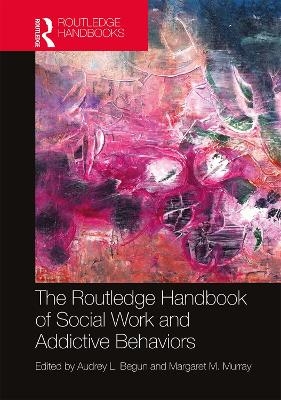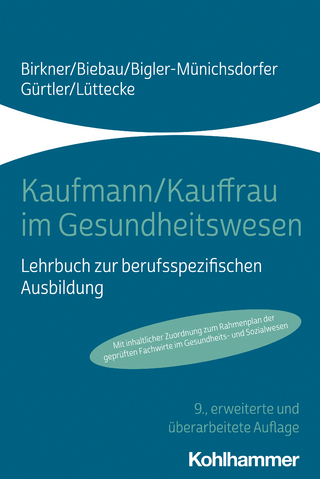
The Routledge Handbook of Social Work and Addictive Behaviors
Routledge (Verlag)
978-0-367-19554-0 (ISBN)
The Routledge Handbook of Social Work and Addictive Behaviors is a definitive resource about addictive behaviors, emphasizing substance misuse, gambling, and problematic technology use. Contents address their prevalence in various communities and populations globally, theories related to their origins and etiology, and what is currently known about effective intervention strategies, education, and research. Social work’s biopsychosocial, lifespan, and person-in-environment perspectives underpin the book contents which are applicable to a wide range of professional and social science disciplines. Contents are divided into five sections:
The scope and nature of addictive behavior and related problems
Addictive behavior across the lifespan and specific populations
Interventions to prevent and address addictive behavior and related problems
Issues frequently co-occurring with addictive behavior
Moving forward
This handbook provides students, practitioners, and scholars with a strong focus on cutting-edge high-quality research. With contributions from a global interdisciplinary team of leading scholars, this handbook is relevant to readers from social work, public health, psychology, education, sociology, criminal justice, medicine, nursing, human services, and health professions.
Audrey L. Begun, MSW, PhD, Professor in the College of Social Work at The Ohio State University. For more information visit https://csw.osu.edu/about/faculty-staff/faculty-directory/begun-audrey-ph-d/. Margaret M. Murray, MSW, PhD, retired as Director, Global Alcohol Research Program, National Institute on Alcohol Abuse and Alcoholism (NIAAA) at the National Institutes of Health (NIH).
List of contributors; Acknowledgments; 1 Introduction to The Routledge Handbook of Social Work and Addictive Behaviors; INTRODUCTION TO SECTION I The scope and nature of addictive behaviors and related problems; 2 Introduction to psychoactive substances; 3 Global alcohol epidemiology: focus on women of childbearing age; 4 Overview of addiction and the brain; 5 The role of genes and environments in shaping substance misuse; 6 Psychological models of addictive behavior; 7 Social environmental contexts of addictive behavior; 8 Gambling disorder: the first behavioral addiction; 9 Internet Gaming Disorder and problematic technology use; INTRODUCTION TO SECTION II Addictive behavior across the lifespan and specific populations; 10 Neonatal abstinence syndrome: recognition, management, and prevention; 11 Fetal alcohol spectrum disorder: evidence, theory, and current insights; 12 The lay of the land: fetal alcohol spectrum disorder (FASD) as a whole-body diagnosis; 13 The adolescent brain: predictors and consequences of substance use; 14 Addictive behaviors during emerging adulthood; 15 Older adults and substance misuse; 16 Understanding addictive behavior from a human diversity perspective; 17 Substance use across the lifespan of the LGBTQ+ population; INTRODUCTION TO SECTION III Interventions to prevent and address addictive behavior and related problems; 18 Intervening around addictive behaviors; 19 Current and emerging pharmacotherapies for addiction treatment; Screening, brief intervention, and referral to treatment (SBIRT) in the substance use system of care; 21 Mindfulness practices in addictive behavior prevention, treatment, and recovery; 22 Working with children whose parents engage in substance misuse; 23 All drugs aren’t created equal: exploring the general and specific effects of psychoactive substances to understand child maltreatment risk by drug type; 24 Working with families affected by a member’s addictive behavior; 25 The impact of addictive behavior on grandfamilies; 26 Planning health promotion programs to prevent substance use disorders and their consequences; 27 Integrated care: identifying and intervening with substance misuse in primary healthcare; 28 Drug treatment courts; 29 Roles for social work and other professions in support of recovery-oriented addiction policies and services; 30 Policy reforms to reduce harms associated with substance misuse; 31 Decriminalization and medicalization of cannabis: implications of the Caribbean experience for global social work practice; 32 Emerging policy and practice responses to substance use with currently and formerly incarcerated women; INTRODUCTION TO SECTION IV Issues frequently co-occurring with addictive behaviors; 33 Understanding addictive behaviors and co-occurring disorders; 34 Substance misuse and intimate partner violence; 35 Substance-involved sexual assault; INTRODUCTION TO SECTION V Moving forward; 36 Implementation of evidence-based substance misuse prevention and treatment interventions; 37 Core health professional education curriculum for risky substance use and substance use disorder; 38 Using GIS and spatial analysis to better integrate context into our understanding of addictive behaviors; 39 Emerging priorities for practice and research; Appendix A: diagnostic criteria for alcohol use disorder (AUD) and substance use disorders (SUD) in DSM-5® and ICD-11 protocols 625; Index
| Erscheinungsdatum | 17.04.2020 |
|---|---|
| Reihe/Serie | Routledge International Handbooks |
| Zusatzinfo | 53 Tables, black and white |
| Verlagsort | London |
| Sprache | englisch |
| Maße | 174 x 246 mm |
| Gewicht | 1220 g |
| Themenwelt | Sachbuch/Ratgeber ► Gesundheit / Leben / Psychologie |
| Studium ► Querschnittsbereiche ► Prävention / Gesundheitsförderung | |
| Sozialwissenschaften ► Pädagogik ► Sozialpädagogik | |
| Sozialwissenschaften ► Soziologie | |
| ISBN-10 | 0-367-19554-2 / 0367195542 |
| ISBN-13 | 978-0-367-19554-0 / 9780367195540 |
| Zustand | Neuware |
| Haben Sie eine Frage zum Produkt? |
aus dem Bereich


